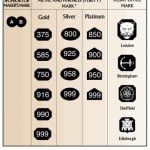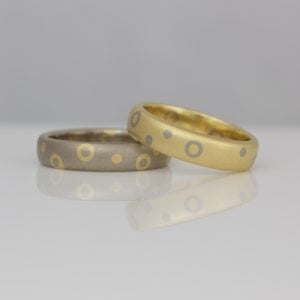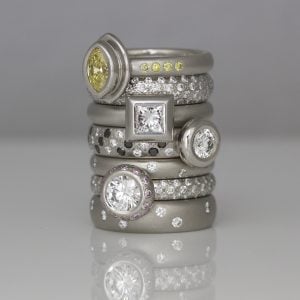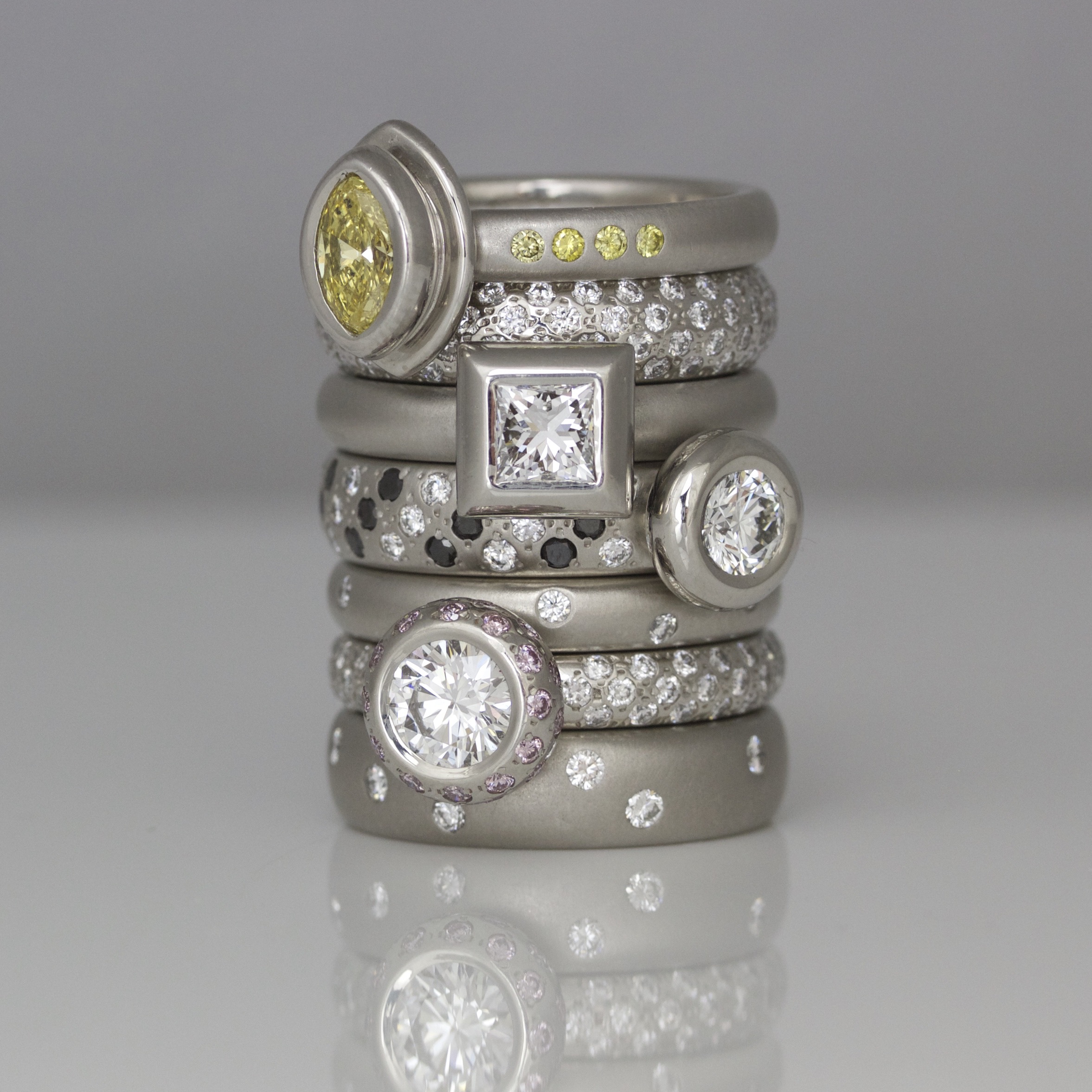Since writing this blog post, the world has changed due to Covid. In uncertain times investors often flock to safe havens, gold being one of them. In 2020 after considering the difference in purity and density the price of 18ct white gold or platinum jewellery is almost the same, platinum being slightly more, due to it's higher (95%) purity & (134%) density.
Not everybody knows it, but white gold doesn’t exist naturally. It’s made from yellow gold mixed with white metal alloys like palladium or silver.
The reason gold is combined with alloys is because gold is soft. If pure gold was used on its own in jewellery, it would bend out of shape quickly. For this reason, gold has to be mixed with harder alloy metals, to make it more rigid and durable.
Platinum or white gold what’s the difference?

You may have heard the term “carat”, abbreviated with the letters ct, is used to describe the purity of gold. The measurement is on a scale of 24, where “24 carat” (or 24ct) represents pure gold. 9ct gold is therefore 37.5% pure gold and 18ct gold is 75% pure gold. The rest is a mixture of alloy metals used to harden the gold. Alloys vary the colour and also how the metal acts, casting alloys work well when molten but crack when cold worked. Thus 18ct gold is 75 % pure bright yellow gold, 25 % alloys. To guarantee the type and purity of metal, all jewellery sold in the UK has to be independently tested by an assay office. We use the London office, everything we produce has been tested and contains all the required marks, discover more here.
18ct white gold is a warm white, not bright white metal.
If you see white gold looking very bright white and shiny, it’s been given a coating with a silvery-white metal called rhodium. This final rhodium finish gives white gold its bright white colour. Rhodium is expensive thus the plating is generally thin, and will need re-plating on a regular basis, for the rest of its life. It is not uncommon for the retailer/ maker to withhold this information, it becomes obvious when the plating wears off and the warm white colour of the white gold becomes exposed. I have seen yellow gold plated with rhodium, most often when jewellery has been bought abroad on a holiday, the maker knowing the chance of return small.
I like the natural warm white colour of white gold, it’s the perfect contrast against the yellow gold in my diagonal stripe and dot and circle rings,

Never have I rhodium plated any of my jewellery. Platinum and white gold are two very different metals.
Platinum or White Gold ?
The biggest obvious difference between platinum and white gold is that platinum is a naturally white metal. It is rarer than gold, much heavier and more durable. It can be used in a purer form than gold, usually at about 95%, consequently more expensive than gold. Platinum has the advantage of age and work hardening, the longer and more you wear platinum jewellery, the harder it gets, and more securely set the stones.

It may be a higher investment initially, but Platinums enduring nature makes it the best value in the long run, if you want a bright white piece of jewellery. One more benefit of platinum is that it is hypoallergenic.
Many jewellers shy away from using Platinum as they lack the skills and tools required to work & polish platinum, they find it’s easier to plate white gold.
If you still can’t decide between gold and platinum, don’t worry. I’d welcome you to make an appointment to come and look at the two metals.
I’ll gladly help answer any questions you have about gold vs platinum. This will ensure I make you a piece of jewellery that will bring you a lifetime of delight.

